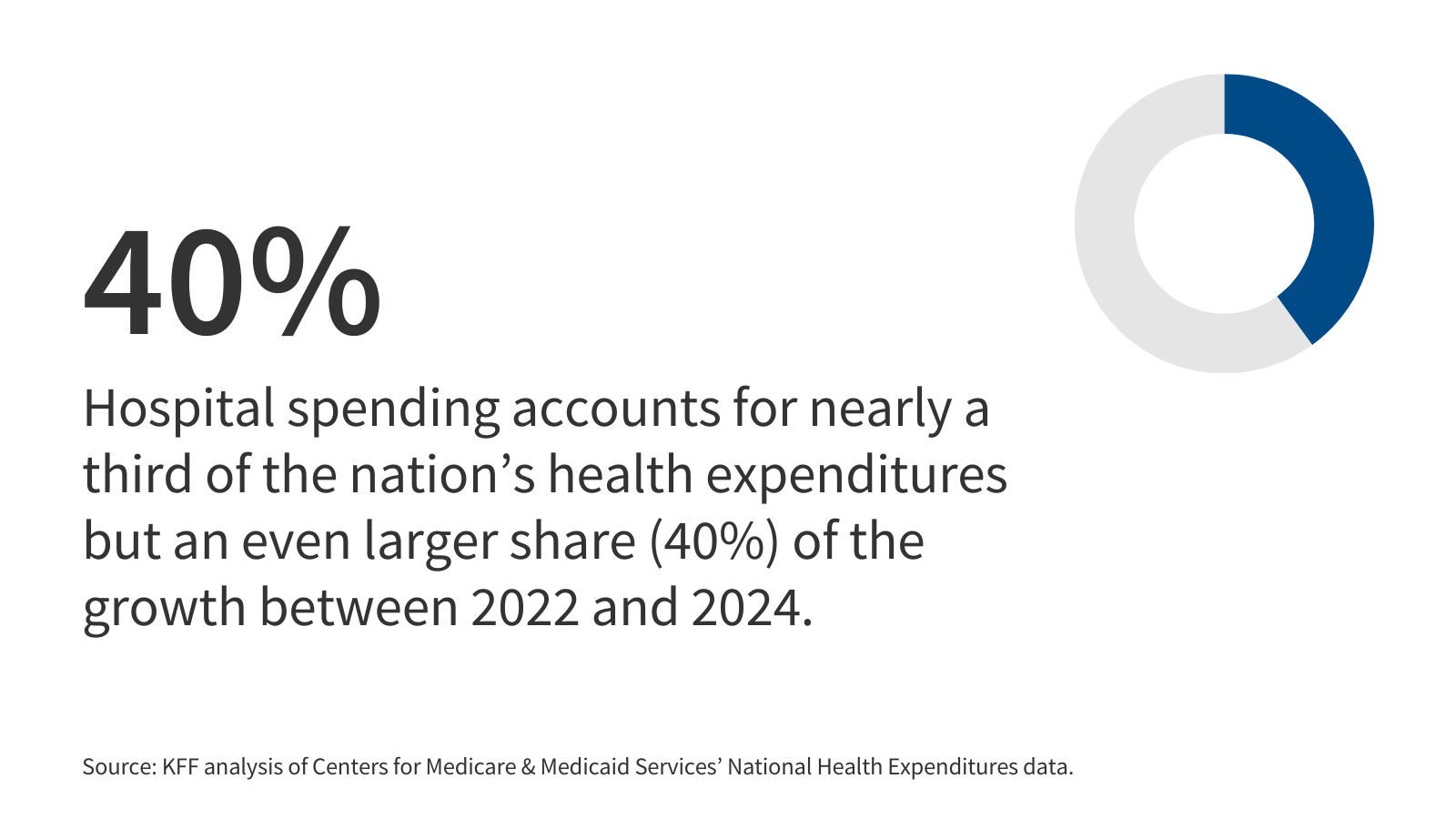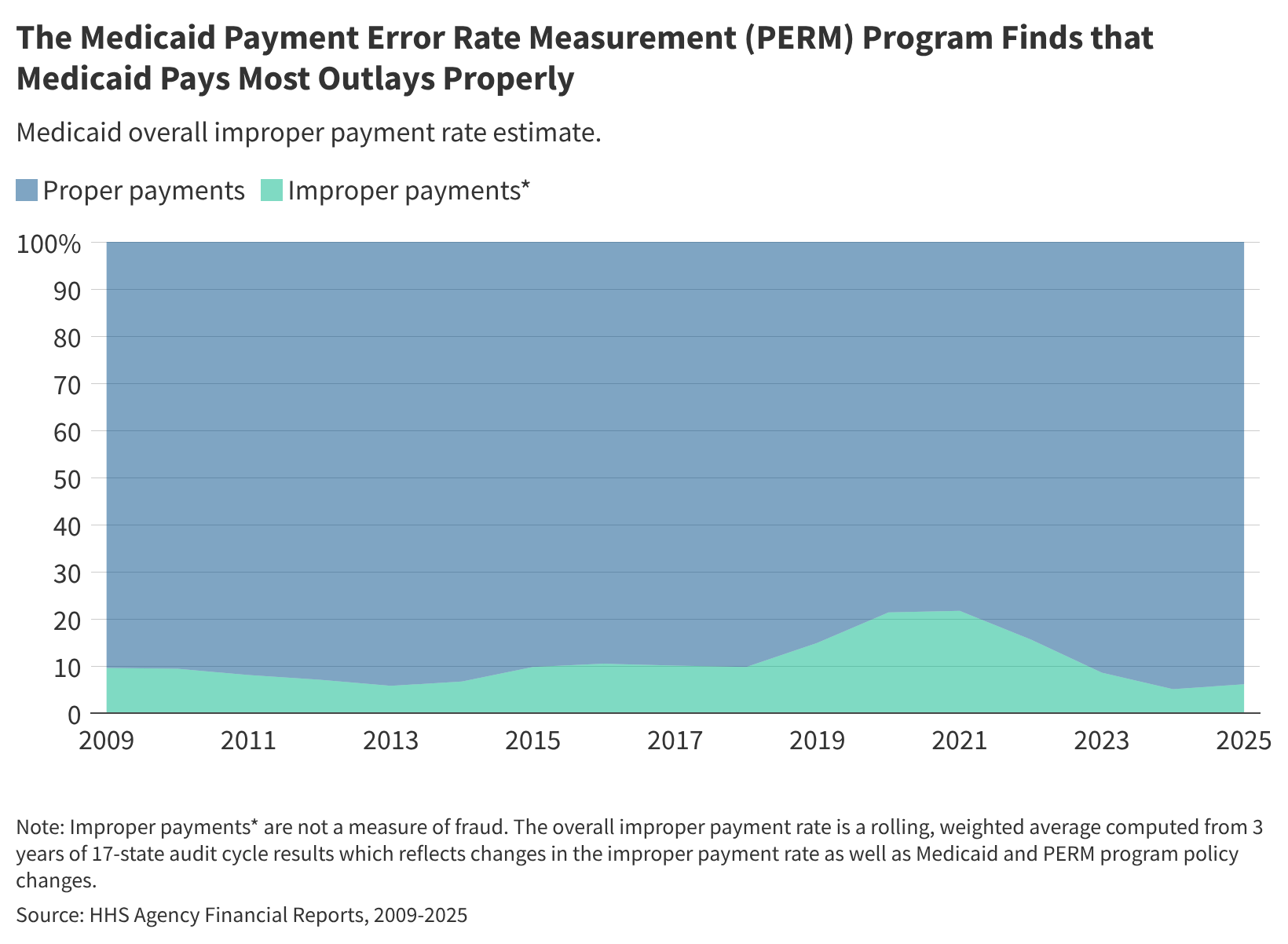A new Commonwealth Fund analysis estimates U.S. hospitals’ annual operating margins will drop by 12.5% to 14.2% in 2027 should mandatory Medicaid work requirements take effect.
Compared to current law, Medicaid expansion state hospitals’ collective 3.6% operating margin would drop between 0.4 percentage points and 0.5 percentage points with the change. That reflects a $10.9 billion to $12.4 billion hit to total operating revenue (a 0.9% to 1% decline) and a smaller $5.5 billion to $6.3 billion drop in total operating costs (both a 0.5% decline).
The hit is driven by increased rates of uninsurance plus other coverage changes that would impact the revenues and expenses of hospitals, which are required to care for the uninsured without compensation.
“The direct effect on hospitals is just one aspect of the economic impact work requirements could have on Medicaid expansion states,” authors of the analysis wrote. “The policy also could reduce access to health care for all people in the community and increase the costs for everyone, as hospitals raise rates to make up the lost revenue.”
The model uses 2023 Medicare Hospital Cost Reports for 2,958 acute care hospitals in Medicaid expansion states and projects their revenues and costs through 2027 based on National Health Expenditure projections.
It also relied on an Urban Institute estimate that between 5.5 million and 6.3 million Medicaid expansion enrollees will lose federally funded Medicaid coverage should work requirements go into effect in 2026. The Commonwealth Fund’s model expects 5.1 million to 5.8 million no longer covered would become uninsured, with the remainder shifting from Medicaid to different types of coverage.
The analysis’ authors note that the Urban Institute’s numbers differ slightly from the Congressional Budget Office’s One Big Beautiful Bill Act estimate of 5.2 million off Medicaid expansion coverage by 2034.
Under that law—which outlines work requirements for existing Medicaid enrollees as well as verifications for meeting work requirements when newly applying—states must implement work requirements by the end of 2026, with allowances to begin earlier or request a delay through the end of 2028.
“For illustrative purposes we show the potential impact on hospitals assuming that the work requirement policy is fully implemented and rolled out by all states in 2027,” the authors wrote.
The estimates of work requirements’ financial impact worsen when looking at expansion state safety-net hospitals and rural hospitals.
For safety net hospitals, the Urban Institute’s analysis outlined between a 1 percentage point and a 1.1 percentage point decline from a baseline 3.8% operating margin (a 25.9% to 29.6% change), stemming from a $4.2 billion to $4.7 billion reduction in total operating revenue (declines of 1.8% and 2.0%) and a $1.7 billion to $2 billion drop in total operating costs (declines of 0.8% and 0.9%). The authors highlighted a particularly large impact in the District of Columbia and Nevada, where almost 40% of total revenues come from Medicaid patients.
“The combined effects of Medicaid work requirements on safety net hospitals and community health centers could leave communities with little to no access to primary, specialty, or emergency care, significantly increasing travel times for routine and emergency health needs,” they wrote.
For rural hospitals, a 4.3% collective operating margin is projected to decline by 1 percentage point to 1.2 percentage points (a drop of 23.3% to 26.6%). Total operating revenue would fall somewhere between $307.8 million to $350.5 million (declines of 1.7% and 1.9%) while total operating costs would dip by $113.1 million to $128.8 million (declines of 0.6% to 0.7%). Here, the authors stressed that more than a third of all rural hospitals are already at risk of closing due to financial strain.
“With many rural hospitals already experiencing negative operating margins, further reductions in Medicaid revenue and increases in uncompensated care could force hospitals to reduce costs by eliminating services that would affect all members of their community; cause them to offset the loss of revenue in part by increasing rates to privately insured patients; or accelerate hospital closures,” they wrote.
Hospital associations and lobbying groups had campaigned against the inclusion of work requirements and other changes to Medicaid during deliberations on the summer’s reconciliation package, to no avail.
Republican lawmakers and Trump administration officials said the requirements were “commonsense reforms” necessary to reduce unnecessary taxpayer spending for able-bodied adults “choosing not to work.” Analyses of Medicaid enrollees suggest most meet the requirements or would be exempt, but older adults in the latter group are at risk of losing coverage due to potential difficulties navigating reporting requirements.
As Congress inches toward another funding standoff at the end of this month, Democrats have outlined rollbacks to Medicaid work requirements among several healthcare-focused demands before providing the Senate votes necessary to avoid a shutdown.
Publisher: Source link










